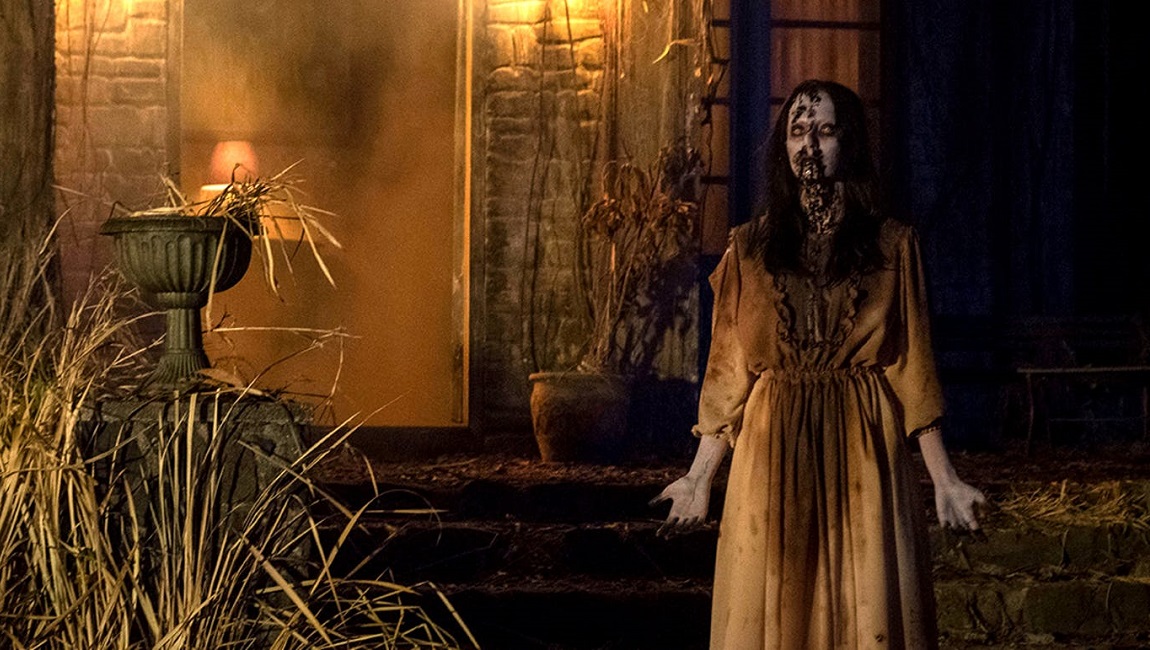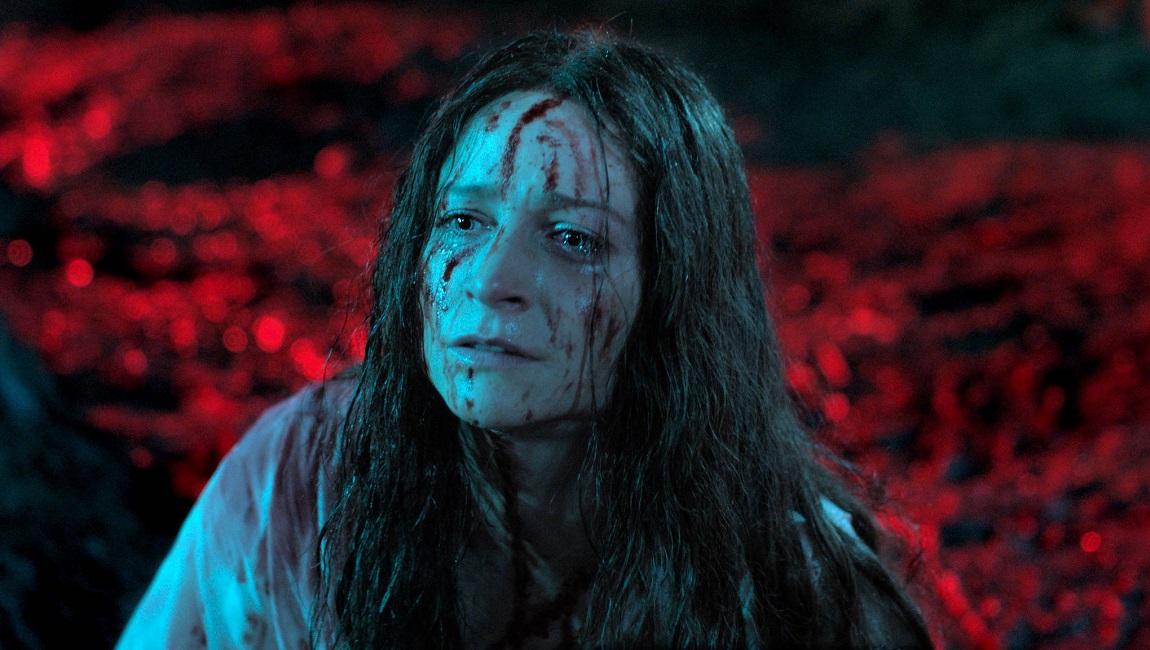May the Devil Take You Too is a Raimi-esque bloodbath, gore-fest, and goop-show that understands how to set up and execute its thrillingly gnarly set pieces.
Timo Tjahjanto has charted an interesting career path, alternating between insanely violent, bone-crunching kung-fu movies and aggressively visceral horror flicks. There is, of course, a long history of the grindhouse overlapping with myriad genres, mixing and matching all sorts of stuff into weird hybrids (even the relatively high-brow Hammer Studios got in on the craze in the ’70s). Fittingly, Tjahjanto’s two fascinations are linked by over-the-top gore and a firm belief that any scene, be it action or scares, can be made better by ratcheting up the extremity. The Night Comes For Us is one of the bloodiest movies ever made, horror or otherwise, and his May the Devil Take You is one of the better Sam Raimi-Evil Dead-inspired possession films in recent memory. That film’s new sequel, appropriately titled May the Devil Take You Too, is definitively more of the same. Thankfully, in this case, the same is still a lot of fun; there’s no elevated horror nonsense here, but rather just pure, unreconstructed, old-school splatter.
May the Devil Take You followed a fractured family cursed by their loutish father, who made a deal with a demon to amass wealth but forfeited his soul in the process. Our lone survivors from part one, the tough, street-smart Alfie (Chelsea Islan) and her young half-sister Nara (Hadijah Shahab), return for the sequel, but one needn’t be familiar with the first entry as Too immediately introduces an entirely new set of characters to be terrorized. Alfie’s importance to this otherwise unrelated group is eventually explained, but the (increasingly convoluted) mythology is the least interesting part of the film. This latest batch of victims-in-waiting are a bunch of orphans who were abused as children by a demented “Father” and have now reconvened as adults to exorcise his spirit from their lives for good. Aware that Alfie has previously survived a supernatural experience with demons, they kidnap her and Nara, forcing Alfie to help them. The whole gang sets up camp in their long-abandoned former orphanage, as they set about casting spells from an “evil bible.” Things go south quickly, as Father’s spirit is first summoned, then somehow unleashed, freely hopping from person to person and wreaking bloody havoc as it goes. There’s more to the plot, including a heel turn from one of the characters that doesn’t really land, mostly because none of the new characters are particularly distinctive. Islan carries the dramatic stakes of the film, her Alfie still haunted by the events of the first film and desperate to escape with Nara, and she’s up to the task, a talented performer who dives headfirst into her physically demanding role with gleeful abandon.
The real star, though, is Tjahjanto’s acrobatic camera which, like the possessed bodies of our hapless protagonists, seems untethered from gravity. Tjahjanto flings the camera this way and that, up and down walls and in extreme closeups that wallow in grimy viscera. Random objects get POV shots, most strikingly as a demon uses its own head to break down a door, and Tjahjanto alternates between flesh hitting the camera lens and the camera hitting the door. Raimi is all over this movie’s DNA, but even the master himself hasn’t made anything this energetic in years. Tjahjanto is having a blast, pulling out every gimmick in the jump-scare handbook and revitalizing them through sheer audacity. Part of the appeal is that Tjahjanto always delivers a payoff — he knows that we know when a character looks in a mirror, looks away, and then looks back that there is suddenly going to be something in that mirror. The difference, then, is that Tjahjanto will then have that something tear a face off. There’s some admittedly dodgy CGI littered throughout, but much of the makeup and carnage is done practically, adding to the movie’s raw physicality. In the same way, there’s a lot of goop on display — thick, oozing stuff that flows freely from wounds and orifices and coats everything in sight. There are also some absolutely merciless kills in this flick. At nearly two hours, May the Devil Take You Too runs a bit too long, but it’s more than compensated for with one delirious set piece after another. It must be said that the film’s ending keeps it from being a total success; there’s some narrative wheel-turning that grows wearisome quickly, and Tjahjanto’s efforts to position Alfie as some kind of chosen one feel imported from another movie. Still, if Tjahjanto’s prerogative is to keep churning these bloodbaths out every few years, there’s always room for more (near) perfectly-executed gore-fests.
You can currently stream Timo Tjahjanto’s May the Devil Take You Too on Shudder.







